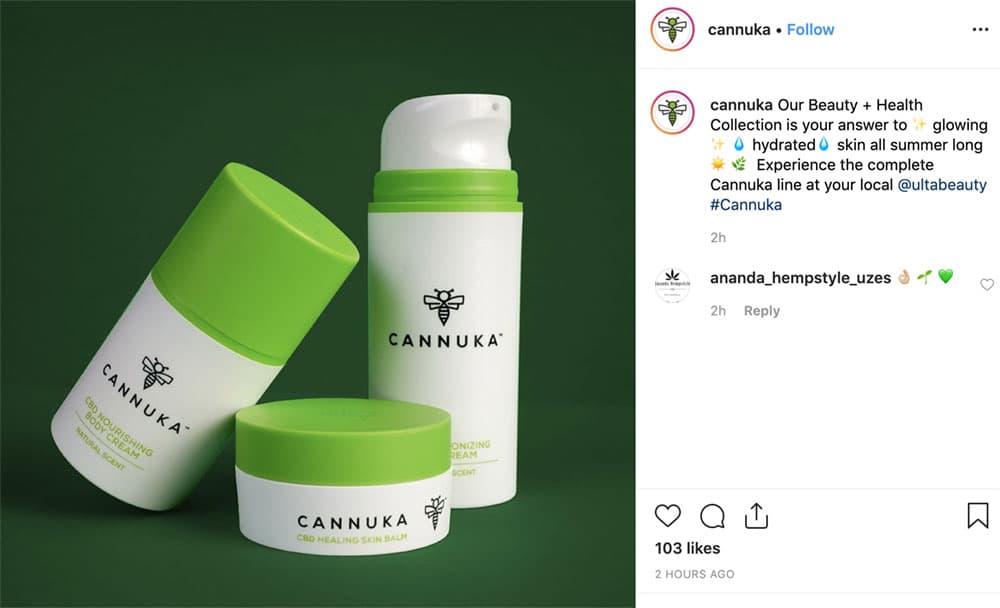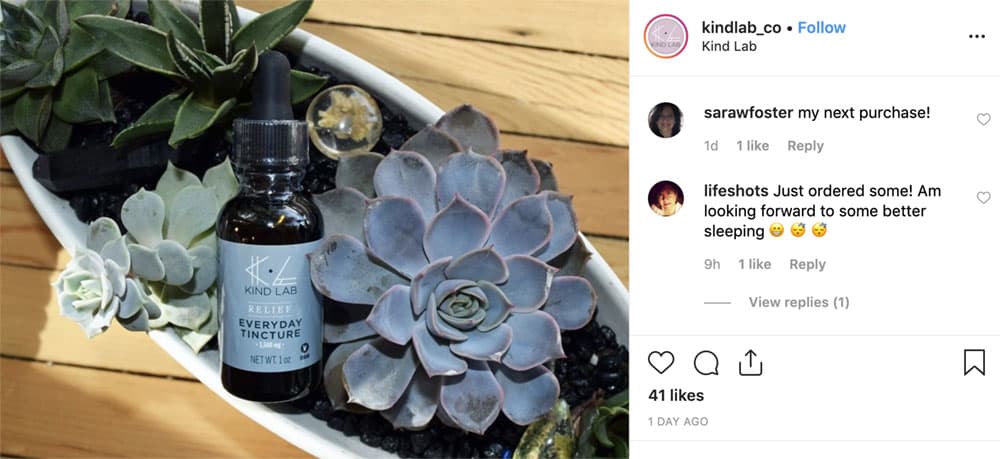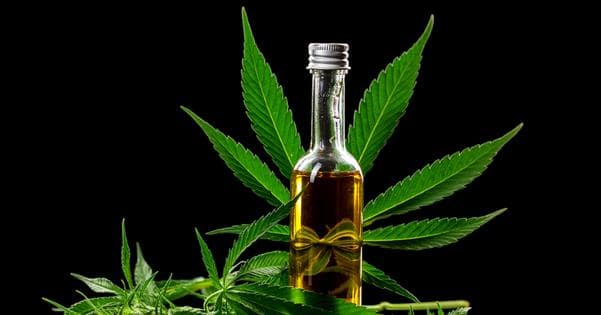By Karen Knapstein, contributor of Underground Group
⏰ 7-minute read
In short:
-
Opportunities abound in the CBD business, but logistics regarding legality can cause headaches.
-
The government is developing regulations around the sale and use of CBD products, and some state laws currently conflict with federal ones.
-
For some producers, an opportunity to educate consumers about the potential benefits of CBD motivates as much as the potential of business success.
At the end of 2018, the U.S. Senate passed a bill (opens in new tab) that changed the classification of the hemp plant from a controlled substance to federally legal. Since then, CBD products have appeared on shelves in thousands of mainstream retailers across the country. Nowadays, CBD can be found in waters, oils and in even lattes at your corner coffeeshop.
Last year’s sales of CBD products totaled between $600 million and $2 billion (opens in new tab), per investment research firm Cowen. The firm’s analysis forecasted that the industry will grow to $16 billion by 2025 (opens in new tab), when 10% of U.S. adults will use CBD.
There’s clearly a business opportunity in CBD. However, those interested in getting involved should be aware of some common industry pain points.
What is CBD?
The cannabis plant contains more than 100 different chemical compounds known as cannabinoids. CBD, or cannabidiol, is one of the non-psychoactive cannabinoids found in marijuana along with tetrahydrocannabinol (THC). Unlike THC, CBD does not create the feeling of being “high” or intoxicated. It’s often extracted from hemp (opens in new tab), a type of cannabis plant with especially low THC content.
CBD is considered to have many therapeutic attributes, including pain and stress relief and anti-aging properties, without the Spicoli stigma that accompanies THC. Currently, CBD is primarily processed into an oil and infused into household products from coffee to lipstick to pet treats.
Companies like Florida-based Green Roads sell CBD-infused coffee.
 (opens in new tab)
(opens in new tab)
How is CBD doing as an industry?
Estimates for the industry’s future are varied, but all point toward growth. In addition to Cowen’s estimates, cannabis research group BDS Analytics made its own prediction: CBD sales in the U.S. will total more the $20 billion by 2024. Other estimates from industry analysts at Brightfield and the Hemp Business Journal say the market will total $646 million and $22 billion, respectively, by 2022.
“We’re witnessing CBD maturing from a cannabis sub-category into a full-blown industry of its own,” Roy Bingham, co-founder and CEO of BDS Analytics, said in the study. “Our growth forecast for the CBD market, across all distribution channels, predicts a compound annual growth rate of 49 percent by 2024.”
CBD currently impacts industries including cosmetics, food and beverage and pharmaceuticals. Products are sold (opens in new tab) through licensed dispensaries as well as general-market retailers including cafes, smoke shops, grocery stores and pharmacies. Overall, sales are shifting from dispensaries to general retail stores.
Retailer Ulta Beauty sells CBD body creams and balms from Cannuka.

And opportunities abound. Thanks to last year’s legislation, known as the Farm Bill, U.S. farmers can grow hemp,
the CBD cash crop, in a much more relaxed legal framework.
"Along with providing certainty to agricultural communities, I am especially proud that the legislation will open a new door for farmers in Kentucky and around the country to explore the full potential of industrial hemp," U.S. Sen. Mitch McConnell told a Kentucky news station last year after the bill’s passage.
How is CBD being regulated?
Despite the change in federal law around the hemp plant, the manufacturing and sale of CBD products remain legal gray areas. The Farm Bill protects hemp farmers (opens in new tab) and provides a safe framework for their interstate transportation, insurance and financial services, according to cannabis journal Marijuana Venture. However, it doesn’t set parameters for selling the end product.
Many CBD products are topical: As with most lotions, they are meant to be applied to the skin, not consumed. It’s federally legal to possess (opens in new tab) these creams, balms, salves and oils as long as they’re made of the hemp plant and not the marijuana plant, though not all states have passed laws to reflect that.
Meanwhile, it’s still illegal to add CBD oil to food without a doctor’s prescription (opens in new tab), the New York Times reports. Yet some states have passed laws that contradict this, resulting in an onslaught of CBD-infused smoothies, cocktails and salad dressings (opens in new tab) whose legality remains murky and largely unchecked.
We requested some guidance from the FDA, and while the agency pointed us to some resources, we got no clear answers. The agency has yet to issue guidelines for the use of CBD products but held a hearing last month (opens in new tab) at which stakeholders including medical professionals, lawyers, CBD growers and product manufacturers discussed the therapeutic potential of CBD, among other topics.
Government officials didn’t impose any regulations as a result of the hearing but rather called for more research into CBD’s effects. The first step in the process is a public comment period (opens in new tab) that lasts until July 2, 2019, after which the FDA “will work as quickly as possible to define a way forward,” Principal Deputy Commissioner and Acting CIO Dr. Amy Abernethy said on Twitter.
Kent Haehl is the CEO of Greenlight Approved, a platform that educates prospective consumers of legal cannabis. He predicts the FDA’s focus on indigestible CBD products over topical ones will provide a path for the latter’s growth as a category.
“Topicals are going to proliferate, because the FDA isn't going to worry about it,” he said.
If there aren’t clear regulations, how do CBD producers ensure consistency in their products?
“It is a bit of the Wild West in terms of CBD quality or concentration of CBD in a product,” said Angela Arena, who owns an e-commerce business and CBD boutique called Kind Lab (opens in new tab).
From her store in Beverly, Massachusetts, Arena sells both topical and consumable CBD products including roll-on oils, balms, edible gummies and capsules designed to promote healing, reduce inflammation and improve sleep. She is eager for government regulations around CBD sale and use.
“I am a grade-A rule follower,” she continued. “My philosophy is that I don’t carry anything I wouldn’t give to my children.”
Kind Lab owner Angela Arena carefully formulates her CBD products, she said.
 (opens in new tab)
(opens in new tab)
Carson Thorp agrees. He is a third-generation farmer who runs Central Coast CBD Oil and said “there’s a lot of
snake oil” in the CBD products category. In producing his oil, Thorp wants to bypass suppliers to guarantee
consistent quality, he added. He currently maintains about 15 acres of high-CBD industrial hemp in Bend, Oregon.
His goal is to sell organic, high-quality CBD products directly from his farm to consumers.
Central Coast CBD Oil infuses its oil into balms, tinctures, mints and other
products.

The FDA recognizes the inconsistency between federal law, state laws and the formulations of CBD products.
“Many consumers think that regulatory pathways are fully in place to [CBD] keep products safe,” Abernethy also said on Twitter. “Meanwhile, speakers [at the recent FDA hearing, which included CBD business representatives] reinforced that regulatory pathways are unclear.”
In the absence of government regulations, topical CBD products are a mixed bag, Haehl said. He said he thinks CBD producers are passionate about quality control and carefully-formulated products because they appreciate CBD’s benefits and don’t want consumers to have bad experiences -- or simply ineffective ones, which are more likely.
Guaranteeing consistency is an uphill battle, said Derek Thomas, vice president of business development at Veritas Farms (opens in new tab) in Ft. Lauderdale, Florida.
“Some challenges we faced in the very beginning were formulations,” said Thomas, whose company runs its farming and manufacturing operations out of Pueblo, Colorado. “We now have a full-time scientist on staff, and we control our entire supply chain when it comes to the oil.”
Veritas Farms sells products containing full-spectrum CBD oil in select CVS stores and at Neiman’s Family Market, a small Michigan chain. It details information about its oil on its website and product packaging. Each package displays the lot and batch number of the oil used to make the product, as a way of offering transparency to customers.
Veritas Farms maintains hemp plants to produce its CBD oil.
 (opens in new tab)
(opens in new tab)
Currently, there is no official vetting process for selling CBD products to retailers, just
an FAQ
response (opens in new tab)
from the FDA. Thomas said he can’t speculate what that process would eventually look like, however, he said he
believes that producers’ self-imposed quality control regulations currently help CBD products land in retail
spaces.
What is it like to bank and get insured as a CBD company?
Banking and payment processing are constant pain points in the CBD industry, said Arena. There isn’t an official policy on banking for CBD businesses.
”Banks are ultra-conservative [in opening accounts for CBD companies],” she said. “... I was turned down by three banks before I got an account.”
On credit card payments to CBD companies, Inc. reports that “high-risk processors charge a five to six percent fee per transaction,” higher than the average 1.5 to 3% (opens in new tab) they charge lower-risk businesses.
Then, there’s insurance.
“It’s critical for anyone manufacturing and selling products,” said Arena. “And, of course, finding someone who will insure hemp companies can be difficult, as rates are much higher than for ‘regular’ consumer products.”
Most small businesses pay between $400 and $600 annually (opens in new tab) for general liability insurance, according to Insureon. Castle Rock Insurance Agency, meanwhile, quotes insurance for CBD companies at “less than $4,000” (opens in new tab) per year -- a stark contrast.
What are the benefits of starting a CBD company?
For all the logistical issues that come with joining a recently-legalized industry, there are many highlights.
Firstly, the regulations -- at least for consumables -- that many CBD companies are looking forward to are coming, per the FDA. And major retailers are getting on board: CVS (opens in new tab) and Walgreens (opens in new tab) recently started selling CBD products in some stores, more than 2,000 in total.
CBD is also making its way into medication. In June 2018, the FDA approved a CBD-containing seizure medication called Epidiolex. CBD is also in Dronabinol, an FDA-approved medication for chemotherapy-related nausea and vomiting, and it is widely used to treat pain, anxiety skin itchiness, acne and allergic dermatitis.
In order for the industry to maximize growth in the coming years, CBD companies will need to convince skeptical consumers that the product indeed works, Haehl said. He also said he envisions an economy and environment bolstered by industrial hemp (opens in new tab).
There is “a lot of work required by companies to communicate how [CBD] has a therapeutic benefit,” Haehl said. And “the opportunity is well beyond CBD. Industrial hemp will have a pretty profound impact on the way that we live.”
Want to learn more about the CBD industry?
Stay tuned for more coverage from Grow Wire. Meanwhile, the FDA (opens in new tab), lobbying site U.S. Hemp Roundtable (opens in new tab) and cannabis education site Project CBD (opens in new tab) are good places to start.




